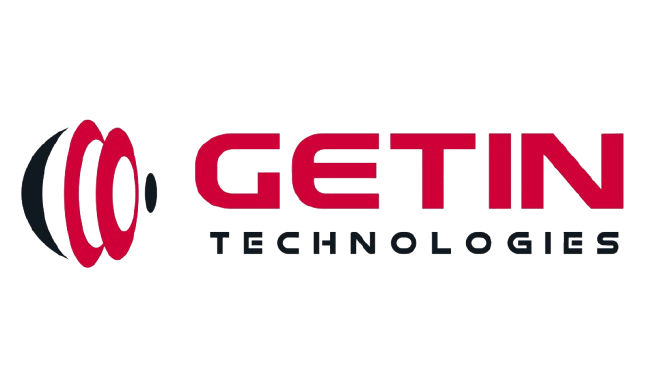World
Class Instructor
1:1 with
Industry Expert
400+
Global Hiring
55%
Avg. Salary Hike
- Overview
- Course Details
- Syllabus
- FAQ
Searching for the top Java FullStack training in Kovilpatti? Getin Technologies provides a career-oriented course for students, freshers, and professionals to get expertise in both front-end and back-end programming. The course includes Java, Spring Boot, Hibernate, ReactJS, Angular, HTML, CSS, JavaScript, and MySQL through hands-on projects. This Java FullStack training in Kovilpatti provides real-world exposure and makes you an industry-ready Java FullStack Developer. Develop confidence with hands-on sessions, expert guidance, and full placement assistance.
Our Highlights
- Extensive Coverage of Curriculum
- Trained Trainers
- Projects in Real Time
- 100% Placement Assistance
- Flexible Learning Options
- Affordable Fees with Certification
- Skills Ready for the Job
- Personalized Mentorship
What you will Learn?
- Master Java basics, object-oriented programming and core concepts in building scalable applications.
- It develops expertise in front-end technologies, such as HTML, CSS, JavaScript, and React, in UI development.
- Learn backend development using Java, Spring Boot, RESTful APIs, and database integration techniques.
- Git as the means to understand version control; deployment using cloud platforms; CI/CD.
- Developing complete stack applications and working with client-side and server-side frameworks to create end-to-end solutions.
Reasons to do Java Full Stack Course

High Demand

Salary

Best for Beginners
Java Full Stack Training Module 1
HTML + CSS + JavaScript + Java + J2EE + SQL
Total Course Duration: 90 Days
Java FullStack Training Module 2
HTML + CSS + JavaScript + ReactJS + Java + J2EE + SQL + SpringBoot
Total Course Duration: 120 Days
Java FullStack Training Module 3
HTML + CSS + JavaScript + ReactJS + Java + J2EE + SQL + SpringBoot + Hibernate + API + AWS
Total Course Duration: 125 Days
Java Full Stack Course Overview
A Java Fullstack course equips learners with complete knowledge of backend development and front-end UI development, helping them master real-world application building. It covers essential topics like user interfaces, server-side programming, database management, RESTful API integration, and project deployment, ensuring readiness for high-demand Full Stack Developer roles. The Java FullStack training in Kovilpatti offered by Getin Technologies focuses on practical learning with technologies such as Core Java, Advanced Java, Spring Boot, Hibernate, ReactJS, Angular, HTML, CSS, JavaScript, MySQL, and MongoDB.
With strong fundamentals and job-ready skills, students undergoing this Java FullStack training in Kovilpatti are prepared to thrive in today’s dynamic software development landscape.
Future Scope for Java FullStack Developer
- High demand in enterprise application development.
- More opportunities in cloud-based solutions.
- Increased demand for Java in big data and analytics.
- Expanding roles in Microservices and DevOps integration.
- Growth career in Mobile Application development using Java for Android.
What will you Learn ?







Module 1 - HTML (10 Days)
HTML Basics
- Introduction
- What is difference between HTML and HTML5?
- HTML Overview
- DOCTYPE
- HTML Tag Vs Element
- HTML Attributes
Basic Formatting Tags
- Basic HTML Tags
- Basic Formatting Tags
HTML Grouping Using Div and Span
- Div Tag
- Span Tag
HTML Lists
- Unordered List
- Ordered List
- Definition List
Images
- Image and Image Mapping
Tables
- <table>
- <tr>, <th>
- <caption>
- <thead>, <tfoot> , <tbody>
- <colgroup>
Frames
- Iframes
- Attributes Using Iframe as the Target
Forms
- HTML Form Elements
- HTML Input Types
- HTML Input Attributes
HTML Media
- HTML Audio and HTML Video
Module 2 - CSS (10 Days)
- What is CSS?
- CSS Inclusion
- Selectors
- Colors
- Background
- Border
- Margin
- Padding
- Height
- Width
- Sizes
- Box-Model
- CSS Fonts
- CSS Text
- CSS links
- CSS Tables
- Display, Position
- Margin property
- Padding property
- CSS Lists Styles
- CSS Cursors
- CSS Overflow
- CSS Position
- Pseudo Classes
- Pseudo Elements
- Animation
- Transform
- Transition
- Media Query
- Box Sizing Flex and Grid
Module 3 - JavaScript (10 Days)
- Introduction
- Variable Declaration
- Arithmetic Operations
- Array
- Array Methods
- String
- String Method
- Math Module
- Condition Statements
- Loops
- Set, Map
- Events
- Module
- Oops
- Asynchronous
- Promise
- Async, Await
- FetchApi
- JavaScript Function
- Function Closure
- Regular Expression
- Error Handling DOM
- Event Listener
- Date Methods
- Object
Module 4 - ReactJs (15 Days)
- Introduction
- Features and Advantages of React
- Environment & Project Setup
- React JSX
- React State
- React Props
- Component Lifecycle Hooks
- Keys
- Redux
- Roung
Module 5 - Java (30 Days)
Module 1
- What is Java?
- Features of java
- Components of Java
- Usages of java
- Class, Object and Methods
- Standard Notation
- Identifiers
- Installation of Java and Eclipse IDE
Module 2
- Coding Standards and Naming Standards
- Introduction to Packages
- Why packages?
- Same Package and Different Package
- Import Statement
- Advantage of package
- Data Types
- Primitive
- non-primitive
- Type conversion
- Implicit
- Explicit
Module 3
- What is scanner
- Scanner methods
- Types of Variables
- Local
- Instance/Global
- Static
- Final
- Methods
- Without argument
- With argument
- Without return type
- With return type
- What is Constructor
- How to create a constructor?
- Usage of constructor
- Types of constructors
- Constructor changing
- This keyword
Module 4
- Operators
- Arithmetic operator
- Conditional operator
- Logical operator
- Ternary
- Compound Operator
- Control Statements
- If
- If else / nested if
- Else if
- Switch case
- Loop
- For
- Nested for
- While
- Do while
- Enhanced for
- Jump Statements
- Break
- Continue
Module 5
- Object Oriented Programming
- Inheritance
- What is Inheritance
- Types of Inheritance
- Super keyword
- Upcasting and Downcasting
- Polymorphism
- Compile Time Polymorphism
- Runtime Polymorphism
- Method Shadowing
- Variable Shadowing
- Abstraction
- Types of Abstraction
- Interface
- Static keyword and default method usage in interface
- Encapsulation
- Getters and Setters
Module 6
- Access modifier
- Private
- Default
- Protected
- Public
- Non access modifier
- Abstract
- Static
- Final
- String
- String Properties
- String Methods
- String Buffer class
- StringBuilder class
- What is Array
- Types of Arrays
- Single dimensional Array
- Array of Objects
- Arrays Class and it’s Methods
- Nested Class and Nested Interface
- Anonymous Inner Class
- Functional Interface
- Lambda Expression
Module 7
- Wrapper Class
- Autoboxing
- Unboxing
- Collection API
- List
- ArrayList, LinkedList, Vector, Stack
- Set
- HashSet, LinkedHashSet, TreeSet
- Map
- HashMap, LinkedHashMap, TreeMap
- Crud Operation
- Stream API
- How to create a stream
- Stream Methods
- Map, Filter, Reduce…etc
- Generics
- What is Generics?
- Advantages of Generics
- Generic Type
Module 8
- Exception
- What is Exception?
- Compile time and Runtime exception
- Exception Handling
- Try, Catch, Throw and Throws keyword
- User defined Exception
- File Handling
- File class and it’s methods
- Writing data into the file
- Reading data from the file
Module 6 - J2EE (15 Days)
J2EE Introduction
- What is a web application?
- What is server and Tomcat web server?
- Setting up the IDE environment with Tomcat
- Assembling & deploying
Module 2
- Servlet
- Servlet api, classes and it’s interfaces
- Request and Response Object
- Servlet Config and Servlet Context
- Init parameters and Context parameters
- RequestDispatcher & SendRedirect
- DoGet, DoPost and Service methods
- Servlet lifecycle and load-on-startup
- Xml file and Annotation
Module 3
- HttpStatusCodes & SendError method
- RequestAttribute, SessionAttribute, ContextAttribute
- Session Management
- Filters API
- Filter Chain
Module 4
- JDBC
- JDBC Drivers
- Creating a connection
- Statement
- Prepared Statement
- Callable Statement
- ExecuteQuery, ExecuteUpdate and Execute
- ResultSet
Module 5
- JSP
- Life cycle
- JSP Tags
- Scriptlet, Expression, Declaration tags
- Expression Language
- JSP Directives
- JSP @page, @include and @taglib
- JSTL tags
- JSP implicit objects
- JSP use bean
Module 7 - SQL (10 Days)
Introduction
- The Relational Model
Understanding Basic SQL Syntax
- Basic SQL Commands – SELECT
- Basic SQL Commands – INSERT
- Basic SQL Commands – UPDATE
- Basic SQL Commands – DELETE
- Querying Data with the SELECT Statement
- The SELECT List
- SELECT List Wildcard (*)
- The FROM Clause
- How to Constrain the Result Set
- DISTINCT and NOT DISTINCT
Filtering results with Where Clause
- WHERE Clause
- Boolean Operators
- The AND Keyword
- The OR Keyword
- Other Boolean Operators BETWEEN, LIKE, IN, IS, IS NOT
Shaping Results with ORDER BY and GROUP BY
- ORDER BY
- Set Functions
- Set Function And Qualifiers
- GROUP BY
- HAVING clause
Matching Different Data Tables With JOINS
- CROSS JOIN
- INNER JOIN
- OUTER JOINs
- LEFT OUTER JOIN
- RIGHT OUTER JOIN
- FULL OUTER JOIN
- SELF JOIN
Creating Database Table Stamp
- CREATE DATABASE
- CREATE TABLE
- NULL Values
- PRIMARY KEY
- CONSTRAINT
- ALTER TABLE
- DROP TABLE
Module 8 - SpringBoot (10 Days)
- Introduction to Spring Boot
- Spring Tool Suite (STS) IDE Configuration
- Creating web application using spring boot
- Application properties file
- Model and View
- Model object
- Spring Boot Data JPA
- Spring Boot MVC
- Spring Boot Data Rest
Module 9 - Hibernate (5 Days)
- Introduction to Hibernate and its configuration.
- How to get data using Hibernate?
- Hibernate Mapping relations.
- Hibernate Caching
- Hibernate Query Languages.
- Hibernate uses in Project
- JPA ORM Implementation.
Module 10 - API (2 Days)
- Building RESTful APIs using Python
- Authentication and authorization
- API documentation
Module 11 - AWS (3 Days)
- Preparing your application for deployment
- Basics of containerization (Docker)
- Introduction to cloud services and deployment platforms (e.g., AWS)
Our Career Service

Job Assistance

Interview Based Training

Expertise and Knowledge

Interview Preparation

Resume Profile Building

Support and Guidance
How long is the Java FullStack training in Kovilpatti?
The Java FullStack training in Kovilpatti takes approximately 8 to 12 weeks, depending on whether you choose weekend, weekday, or fast-track batches.
Will I study RESTful services and APIs within this course?
Yes. You will have hands-on experience with constructing and consuming RESTful APIs, an important skill for FullStack development.
Will I get hands-on practice in the course?
Obviously, you'll be working on a real-world project to gain hands-on experience.
Is the training offered both online and offline?
Yes, our Java FullStack training in Kovilpatti is provided in both offline and online methods, providing versatile learning opportunities based on your preferences.
Will I get placement assistance after completing the course?
Yes, Getin Technologies offers placement services, such as resume preparation, mock interviews, career guidance, and referrals for jobs to excellent Java FullStack positions in key companies.
Is a certification offered upon successful completion of the course?
Yes, after successful completion of the Java FullStack training in Kovilpatti, you will be awarded an industry-recognized certification, which will boost your career prospects.
Is this course suitable for beginners?
Yes! This Java FullStack training in Kovilpatti begins with the fundamentals and goes step by step to advanced development principles ideal for beginners as well as career changers.
How do I enroll in the Java FullStack course at Getin technologies?
You can join us at our Kovilpatti center, register on our Getin website, or call or message us on WhatsApp.
- Java FullStack Training Course
- Duration: 125 Days
- Level: Beginner
- Language: English
- Certification: Yes
Job Roles
- Java Developer
- FullStack Developer
- DevOps Engineer
- Web Application Developer
- Software Engineer

Outcome of Java FullStack Training in Kovilpatti

Comprehensive Skill Set
Develop skills in both front-end (HTML, CSS, JavaScript, React) and back-end (Java, Spring Boot) development, which will make you a full-stack developer.

Industry Relevant Knowledge
Learn the tools, frameworks, and technologies which are used by the industry at present. The knowledge gained helps you to keep pace with industry demands and expectations.

Working on Real-Time Projects
Work on practical projects that simulate actual development scenarios and help you develop a robust portfolio for potential employers.

Problem-Solving Skills
The strength in approaching the more complex coding problems and application of algorithms and design patterns in optimization of the solutions will be achieved.

Career Advancement Support
Increase the likelihood of acquiring highly paid positions in software development since employers seek full-stack developers who are conversant with the latest skills.

Post-Training Support
Benefit from mentorship, direction, and employment opportunities for yourself to make the best use of time while entering the job market.
Who Can Join Our Java FullStack Training in Kovilpatti?
- College students or fresh graduates
- Working professionals looking to transition into full-stack development
- Job seekers looking to aim for software developer positions
- Freelancers and entrepreneurs seeking to create full-scale apps
Related Courses
Dot Net Training
.NET Training equips learners to develop robust applications using the .NET framework, including C#, ASP.NET, MVC, and database integration, cloud services, and full-stack development techniques.
ReactJS Training
ReactJS Training enables hand-on expertise in the building of dynamic and responsive web applications using React, components, state management, hooks, routing, and API for seamless integration.
Python Fullstack Training
The Python Full Stack (PFS) course provides comprehensive training in front-end and back-end development, along with database management and API integration and version control.








